Rural properties offer unique opportunities for pet ownership, allowing animals to roam freely, explore, and interact with nature in ways that are impossible in urban settings. However, not every pet thrives outside city limits. Choosing the right animal for a rural property means considering space, lifestyle, care requirements, and how the pet interacts with both the environment and people. Here are ten pets that are ideally suited for rural living, each bringing companionship and utility while fitting seamlessly into life on the land.
1. Dogs
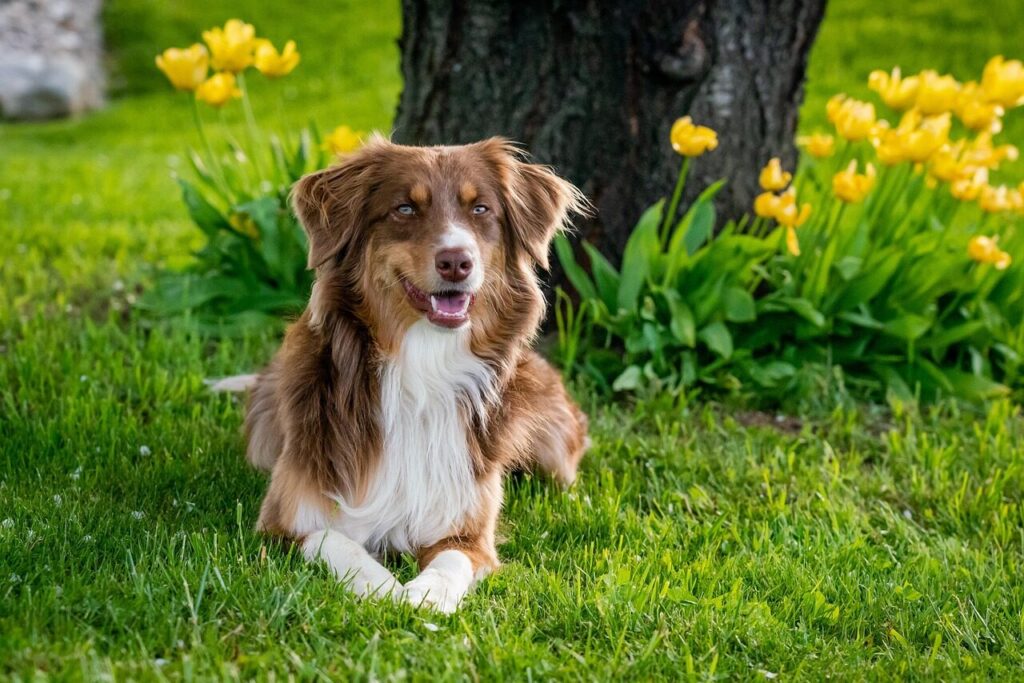
Dogs are among the most versatile pets for rural properties. Certain breeds, such as border collies or Australian shepherds, are particularly suited for open spaces because of their herding instincts and high energy levels. They not only provide companionship but can also assist in guarding livestock and property. Rural dogs typically enjoy long outdoor periods, running across fields, and exploring forests. Care considerations include providing adequate shelter, regular exercise, and routine veterinary checkups. Dogs in rural areas often form strong bonds with both humans and other animals, enhancing the homestead experience.
2. Cats
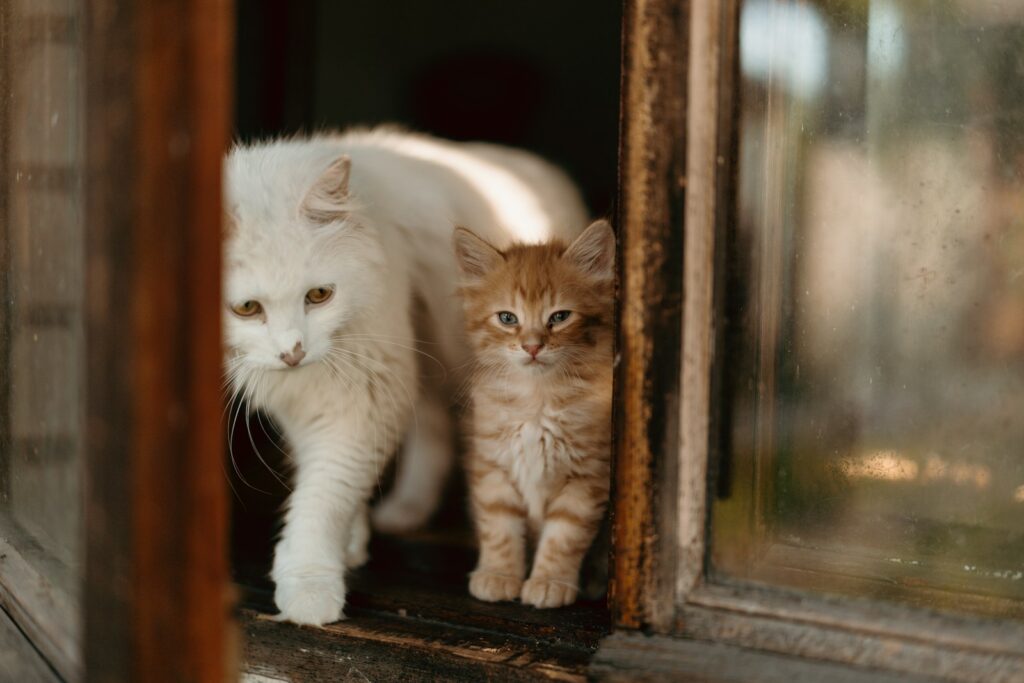
Cats are excellent for rural properties due to their hunting instincts and independent nature. Farm cats, sometimes referred to as barn cats, help control rodent populations and require minimal supervision. They enjoy open spaces for exploring while still returning to a safe shelter at night. Rural cats often adapt easily to outdoor life, though they still benefit from regular feeding, vaccinations, and parasite control. Their playful yet self-sufficient personalities make them ideal companions for people who may have busy schedules or need pest control without constant hands-on interaction.
3. Chickens
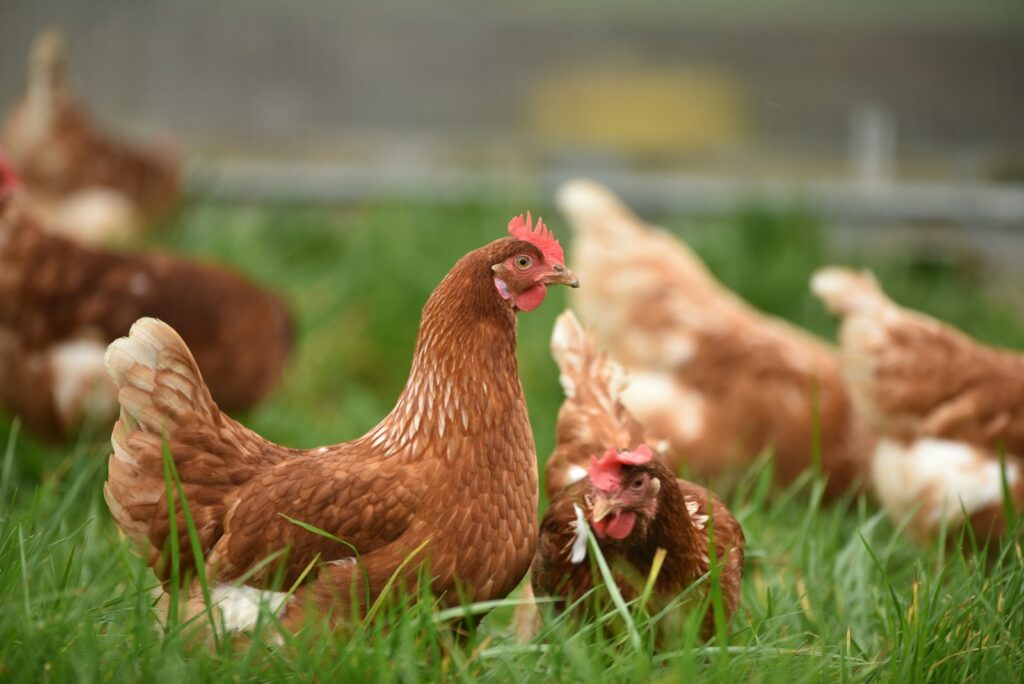
Chickens are not only adorable but highly practical for rural living. They provide a steady supply of fresh eggs and can help control insects around gardens and yards. Free-range chickens thrive with ample outdoor space, access to shelter, and a secure coop for nighttime protection. Rural properties allow chickens to forage naturally, supplementing their diet while promoting healthier and more active birds. Care includes regular feeding, clean water, and routine health checks. They are social animals that enjoy interacting with humans, making them both productive and charming additions to rural life.
4. Goats
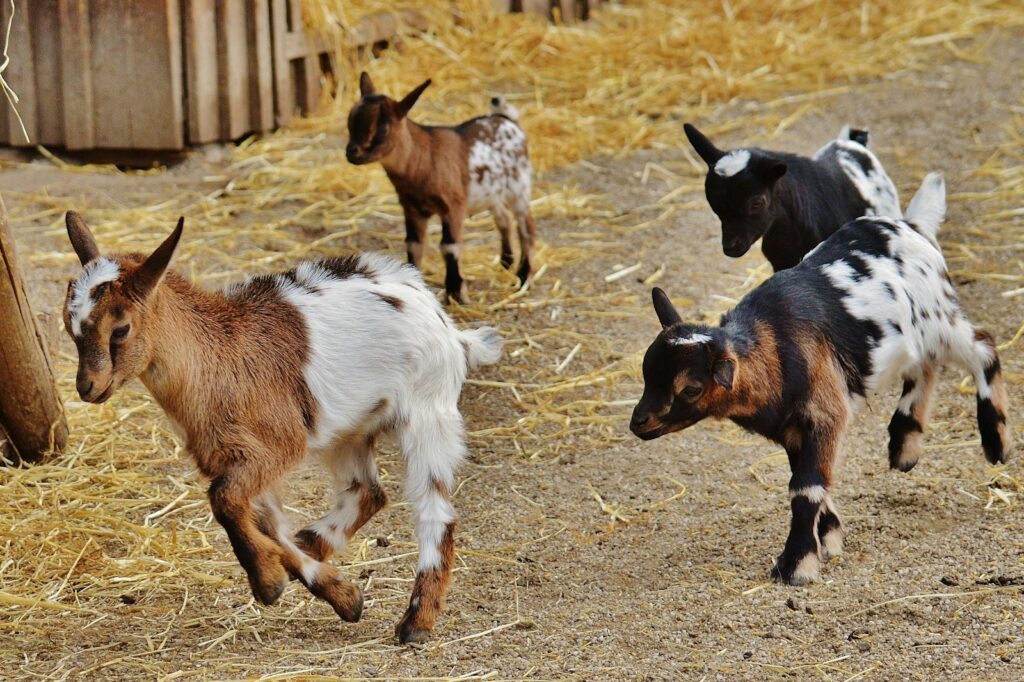
Goats are hardy, adaptable, and highly suitable for rural properties. They are known for grazing on weeds and brush, helping to manage overgrown areas efficiently. Goats thrive in spacious environments and enjoy social interaction with humans and other animals. Providing secure fencing is essential, as goats are curious and capable climbers. Care routines include regular feeding, hoof trimming, vaccinations, and shelter during extreme weather. Beyond their utility, goats can produce milk, and some breeds are raised for meat or fiber, offering both practical and emotional rewards for rural property owners.
5. Horses
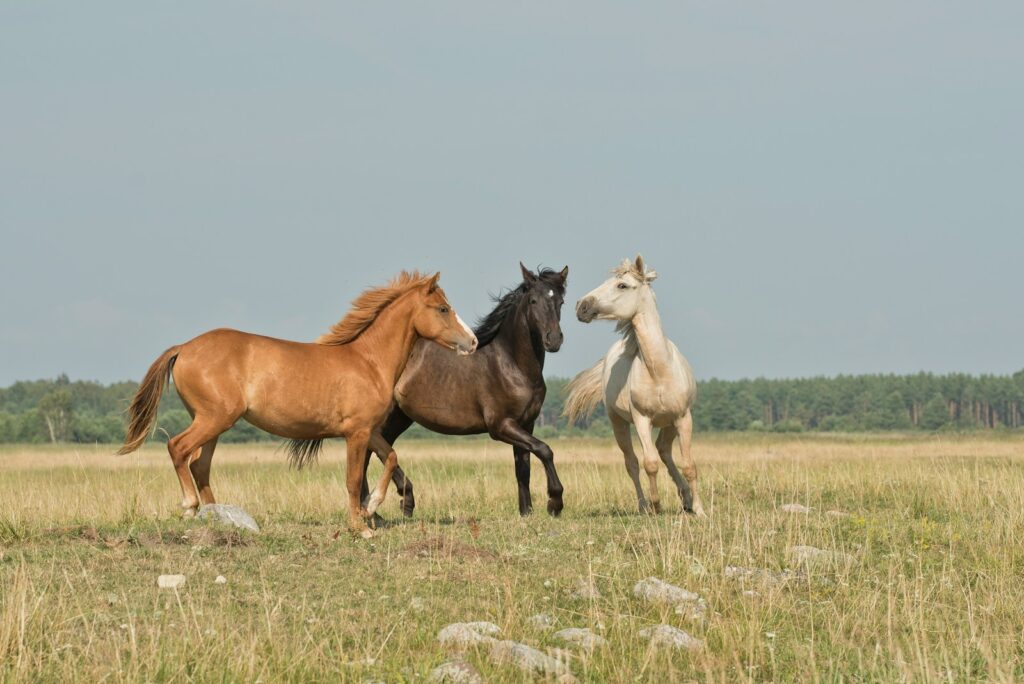
Horses are iconic rural pets and companions, ideal for properties with expansive pastures. They require considerable space to roam and exercise, making them well-suited for open countryside. Horses offer recreational opportunities, such as riding and training, and can serve practical purposes like herding or farm transport in some areas. Proper care involves feeding a balanced diet, maintaining clean water, routine hoof care, vaccinations, and shelter from extreme weather. Horses are social, intelligent animals that bond closely with humans, making them both functional and emotionally rewarding members of a rural homestead.
6. Ducks
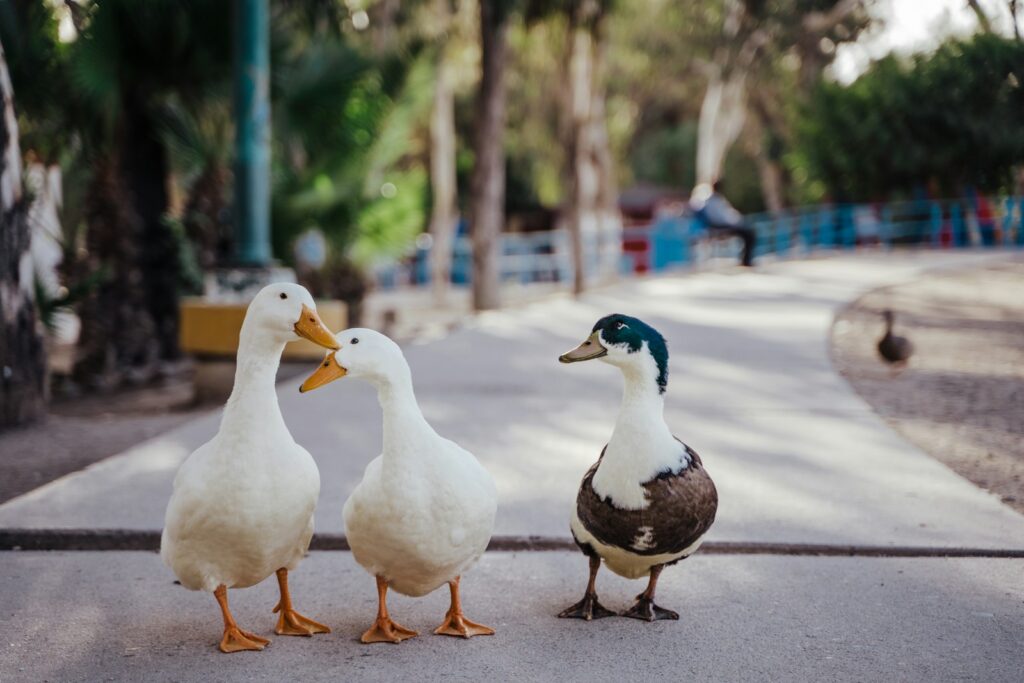
Ducks are charming and productive pets for rural properties. They can live near ponds, streams, or simple water sources and enjoy foraging for insects, helping reduce pests in gardens. Ducks are social animals that thrive in small flocks and adapt well to outdoor life. Providing shelter and safe nighttime housing is essential to protect them from predators. Ducks produce eggs and, in some cases, meat, making them both functional and enjoyable companions. Their playful behavior and pleasant quacking sounds add to the rustic charm, making them a delightful addition to rural homesteads.
7. Rabbits
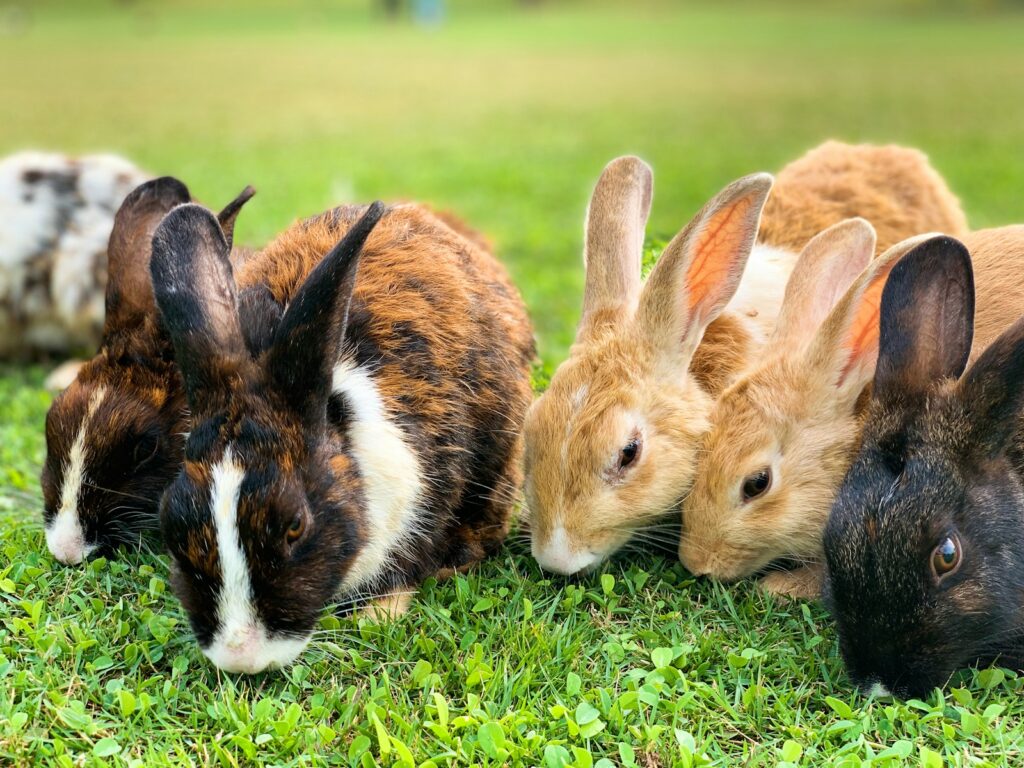
Rabbits are gentle, social, and low-maintenance pets for rural properties. They can live in outdoor hutches with plenty of space to hop, dig, and explore safely. Rabbits are ideal for small-scale meat or fiber production if desired, and their droppings make excellent compost for gardens. They require a diet of hay, fresh vegetables, and water, alongside routine health checks. Social interaction with humans and other rabbits helps keep them happy. Their quiet nature and adaptability to outdoor life make rabbits perfect companions for families seeking low-stress, engaging animals on their rural land.
8. Sheep
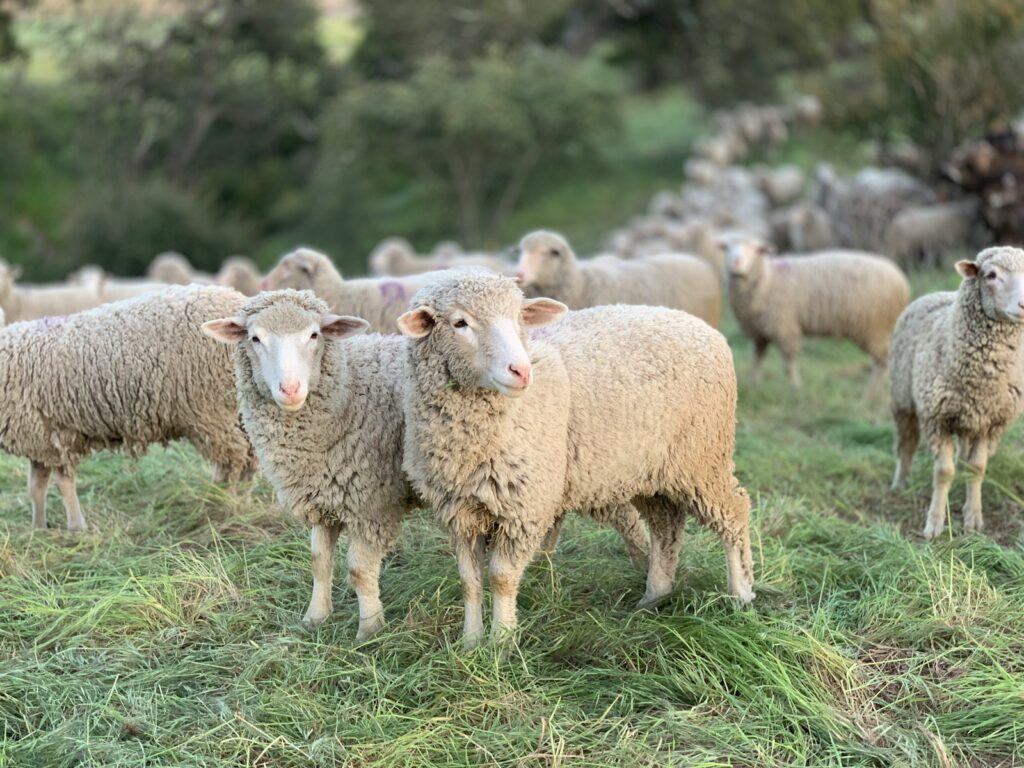
Sheep are excellent livestock and pets for rural properties with ample pasture. They are grazers, helping to maintain grasslands and control weeds naturally. Sheep are generally hardy, but they require shelter, fencing, regular shearing, and health care. Many breeds provide wool, meat, or both, offering practical benefits alongside companionship. Sheep are social animals and thrive in flocks, reducing stress and promoting wellbeing. Their calm nature and utility make them ideal for owners who enjoy hands-on rural life and want animals that contribute to both the landscape and the homestead economy.
9. Alpacas
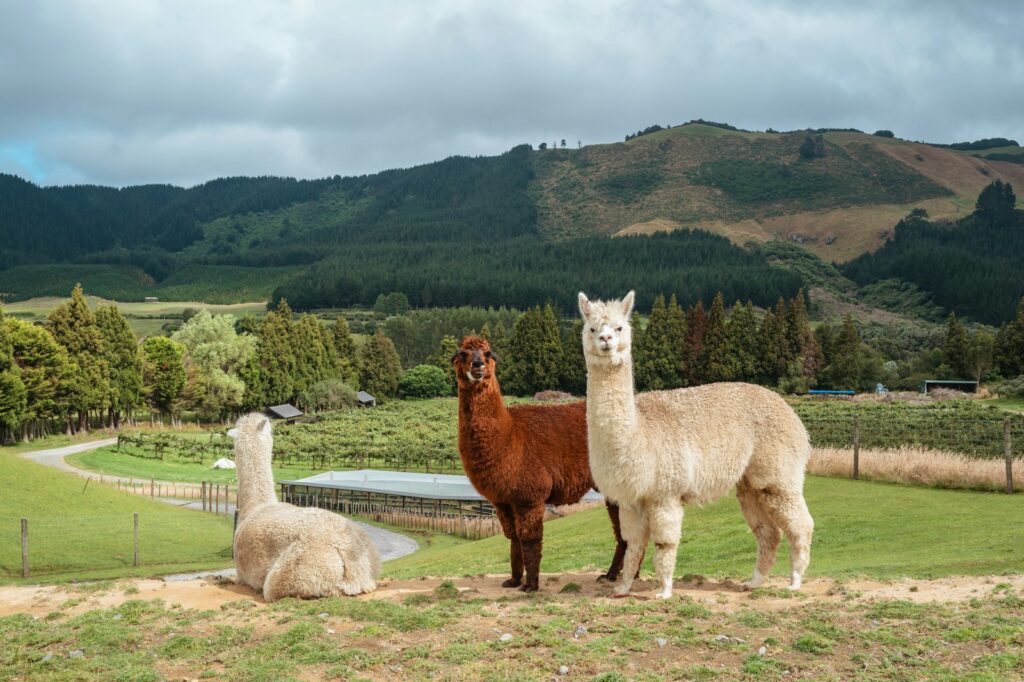
Alpacas are gentle, intelligent animals that suit rural properties well. They are primarily kept for their luxurious fiber, but their low-maintenance nature and friendly temperament make them appealing pets. Alpacas need open space, secure fencing, and basic shelter from extreme weather. They thrive in small herds and are highly social, forming strong bonds with humans and other animals. Care involves feeding high-quality hay, clean water, and occasional health monitoring. Their quiet, curious demeanor and attractive appearance make alpacas a charming addition to rural landscapes, blending beauty with practical benefits.
10. Turkeys
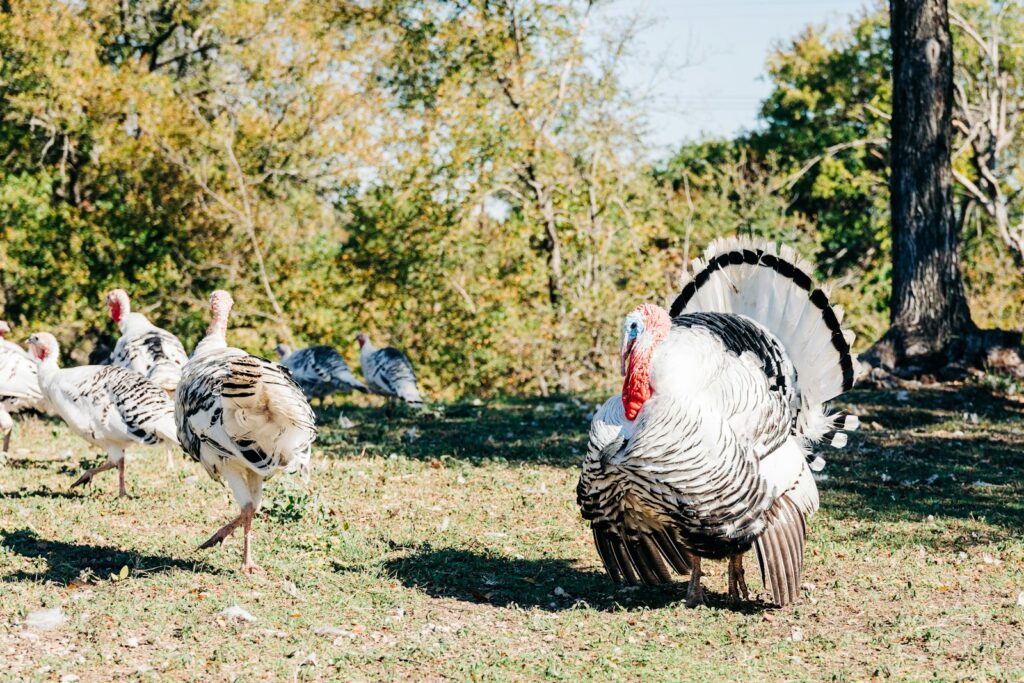
Turkeys are robust, social birds that adapt well to rural life. They require pasture or open space to roam, forage, and exercise. Turkeys are hardy, needing shelter from predators and harsh weather. They can provide meat and, in some cases, eggs. Social interaction is crucial, as turkeys thrive in flocks and develop bonds with caretakers. Feeding them a mix of grains, greens, and clean water promotes health and vitality. Their striking appearance and curious personalities make them a unique and engaging choice for rural properties, adding both practicality and visual interest.
Comments